Source: SenseAI

Image Source: Generated by Wujie AI
A new type of wearable AI necklace developed by Avi Schiffmann, a 21-year-old Harvard University dropout. Users can wear the Tab AI necklace directly around their neck, which continuously records surrounding conversations through a microphone and battery, lasting 30 hours, all-weather, and uninterrupted, and transmits the audio to a mobile phone and the cloud via Bluetooth. Founder Avi Schiffmann's goal is to develop Tab into an AI companion to help users gain more insights in life, similar to a friend, creative partner, therapist, or ChatGPT that understands all aspects of the user's life.
Since the launch of Tab AI for pre-order in October 2023, the product has received $100,000 in pre-sale deposits at a price of $600 per unit (including a $50 monthly service fee for one year).
Differentiation strategy for AI wearable devices: Apple Watch and Oura Ring are useful for tracking user activity and health, but not essential. TAB, as a personalized product that can listen to user voices all day and analyze all aspects of the user's life, has the potential to transform wearable devices from pure tools to intelligent life companions. By retaining users through the emotional value of "silent vigilance," the product is distinguished from tool-based products such as Humane AI Pin, Rabbit R1, and Rewind Pendant.
Potential value of data accumulation: As an AI companion that learns and adapts to users over time, Tab's data collection and analysis will continue to increase. This is expected to build a data flywheel for dual growth in user experience and AI algorithm capabilities.
AI Native Product Analysis
1. Product: TAB AI Necklace
2. Product Launch Time: Pre-orders started in October 2023, with plans to ship around mid-2024.
3. Founder: Avi Schiffmann
Currently a 21-year-old Harvard University dropout. At the age of 17, Schiffmann created a successful COVID-19 tracking website that attracted millions of users daily, but he claimed to have rejected opportunities to profit from advertising during the COVID period. At the age of 19, he founded a website called "Ukraine Take Shelter" to help displaced Ukrainians find shelter and became a UN Youth Ambassador, receiving a Webby award from Anthony Fauci.
4. Product Overview:
Tab AI is a voice-controlled AI necklace equipped with recording functionality to listen to surrounding sounds in the user's life all day, transcribing and analyzing these recordings using large-scale model technology to provide customized insights for users.
5. Investors: Caffeinated Capital, Austin Rief's Rief Capital, Cory Levy, Guillermo Rauch, Shawn Wang, the founder of Solana, and Aravind Srinivas, founder and CEO of Perplexity AI.
01. TAB AI Product Vision
Schiffmann is skilled at developing minimum viable products using existing technology. He has worked in the non-profit sector and expanded this approach to other ventures through his platform, Internet Activism. Recently, he has focused on generative AI and developed Tab.
Tab is a small wearable device designed to be worn around the neck, primarily for recording conversations of the wearer and those around them. It includes a microphone and long-lasting battery, transmitting audio to a mobile phone and the cloud via Bluetooth. Currently, the conversations are transcribed through ChatGPT's service in the cloud, and multiple AI models provide analysis and insights. The user interaction form of Tab is still under development.
Schiffmann plans to create it as an AI companion, similar to a "clarity machine" in life, rather than a conventional assistant. He hopes Tab will become a user's creative partner, life coach, or therapist, providing a non-judgmental transparent relationship.
The key to Tab is how to transform conversations into valuable insights. Schiffmann wants its interface to proactively provide information, similar to the now-discontinued Google Now service, but more personalized. Converting a large amount of information into genuine insights is a challenge. Schiffmann believes that if Tab is very useful, people will accept the fact of being continuously recorded.
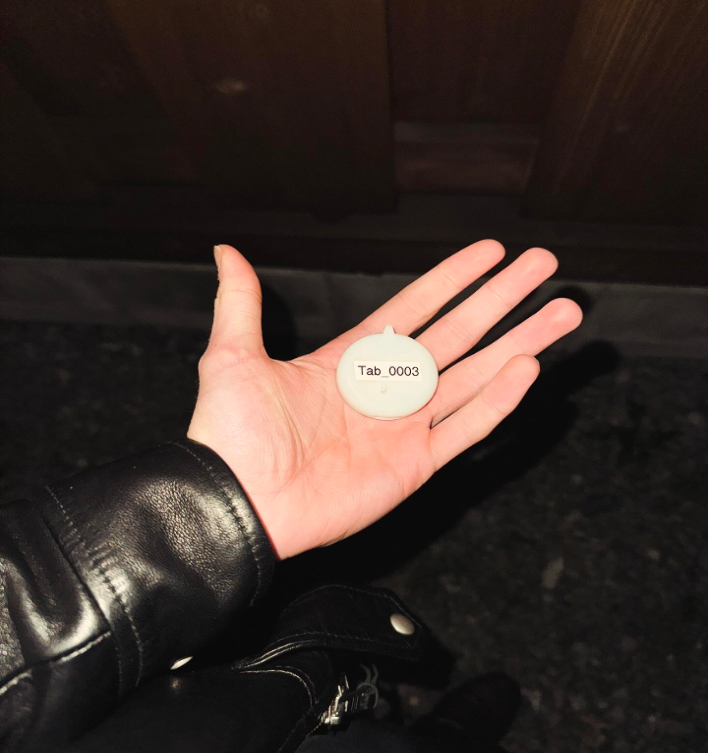
02. TAB Product Design at the Beginning
Avi Schiffmann did not initially intend to create a wearable AI companion. His goal was to develop a natural language-based customer relationship management (CRM) system for his non-profit organization. However, he found it cumbersome to input data using natural language, so he began to consider using wearable cameras and microphones to automatically handle interpersonal relationships.
Although he did not know how to weld, Schiffmann assembled the first Tab device himself, using a Raspberry Pi, a GoPro mount, a standard camera, and an LTE module.
Schiffmann remembers others being curious about his device but not saying much. He believed that if a wearable device is practical enough, people will eventually accept it. He mentioned a roommate who initially did not like the device, but later, during a kitchen chat, the roommate said he had gotten used to the device and even forgot that Schiffmann was wearing it.
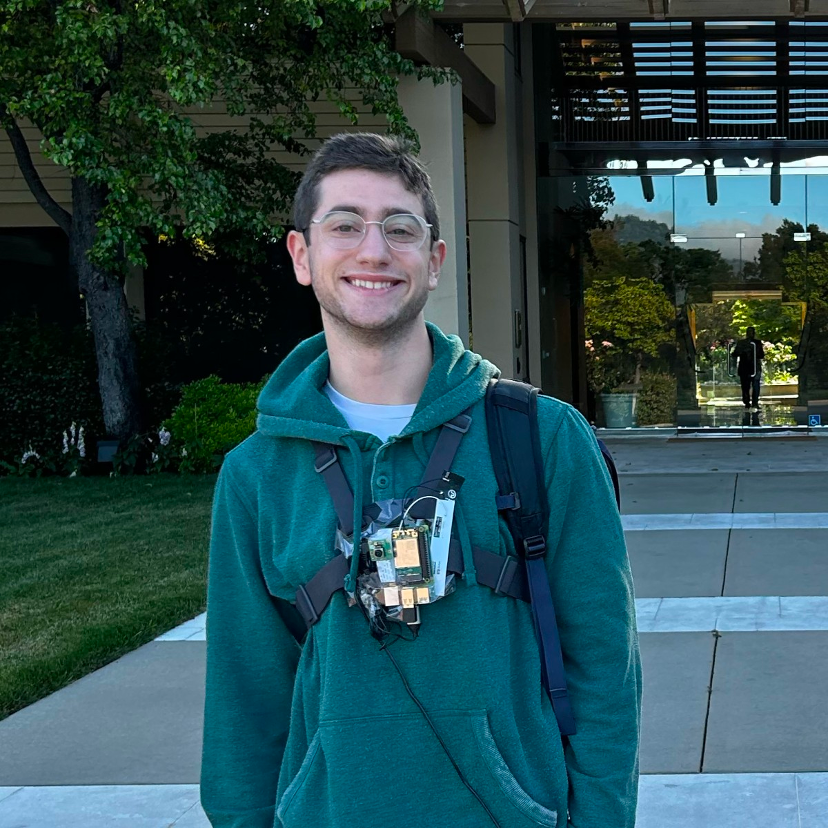
Schiffmann mentioned that when designing the product form, he considered a watch form, but due to the need to record sound all day, there would be issues with unclear sound reception on the wrist. The pendant form is closer to the sound source, making it easier to capture sound. Schiffmann also answered a frequently asked question from netizens: why not make it in the form of a brooch or clip to be worn on the collar of clothing. Schiffmann stated that users are likely to throw it into the washing machine and forget to take it off. Therefore, the pendant form was ultimately chosen.
During the device development process, Schiffmann decided to abandon the camera and focus on audio transcription. The product can record at very low sound quality, providing a rich data stream in a practical and energy-efficient manner, making his first product feasible.
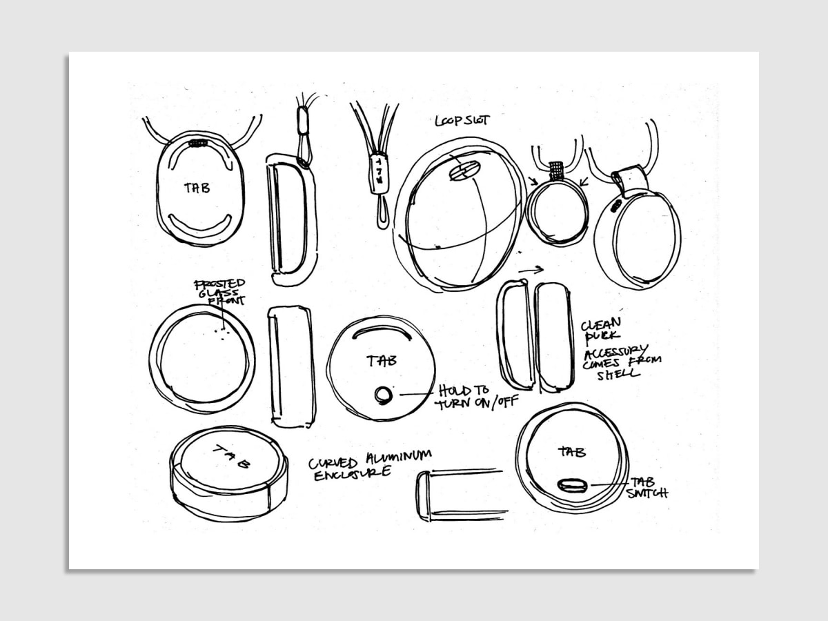
Schiffmann wanted a device that would accompany him at all times, like a parrot on his shoulder or a Pokémon, providing specific references and information in the context of his life. He believed that a physically present 24-hour companion device would create a psychological connection of shared experience that mobile apps cannot provide.
Schiffmann pointed out a flaw in the existing counseling industry: counselors can only hear what people say they have done, not what they actually did. He believed that a 24-hour companion device would not hear biased versions, details would not be forgotten, and people could trace the actual details that happened. He believed this could completely disrupt the existing industry.
Schiffmann emphasized that for AI devices, a new interaction paradigm is not needed, but rather a device that runs continuously and is available at all times, not relying on complex interaction systems. The ultimate experience of Tab is not in the hardware itself; the hardware is just an accessory, designed to make the user almost unaware of its presence. In the distant future, the ultimate outcome of personalized AI companionship may become "friendship as a service."
03. More Entrepreneurs Will Introduce AI Wearable Devices in 2024
Compared to the $600 price and personalized service of the TAB AI necklace, there are many other AI wearable products available in the industry for consumers to choose from.
1. Humane AI Pin:
Price: $699 + $24 monthly subscription
This device, funded by notable figures such as Salesforce CEO Marc Benioff and OpenAI CEO Sam Altman with $240 million, is fixed to the collar of clothing with a magnet, listens to user requests like Siri, and can search the internet, provide real-time language translation, or project the interface directly onto the hand.
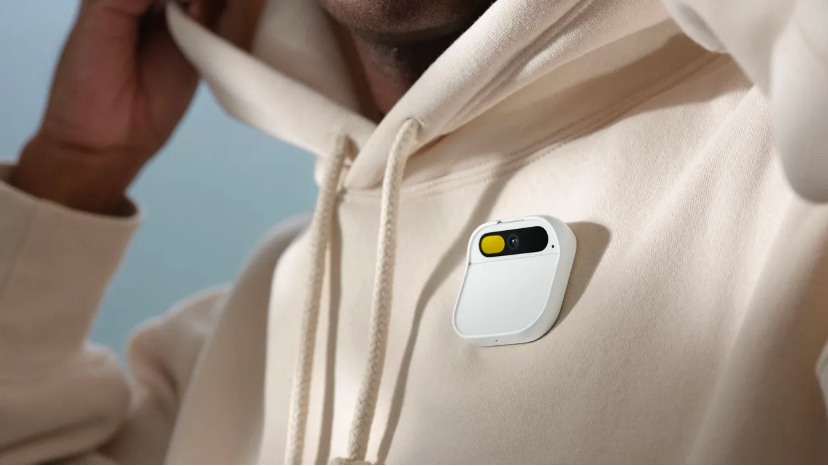
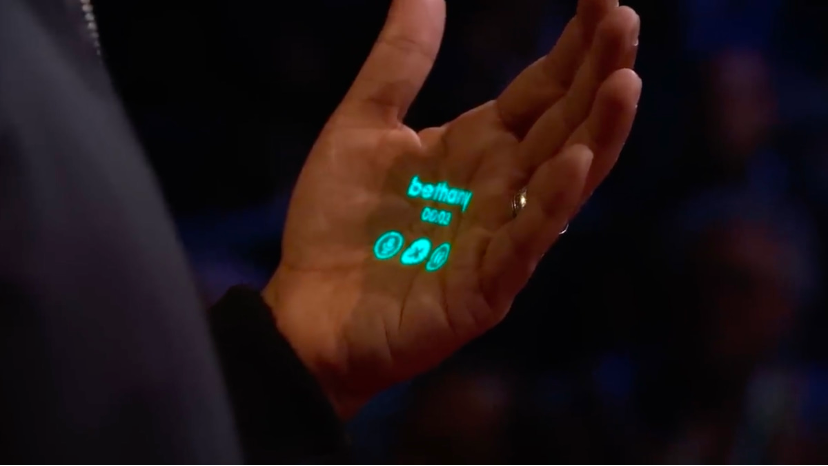
2. Rabbit R1:
Price: $199
The product aims to disrupt all apps. After hearing natural language commands from humans, the product can understand complex human intentions through the Rabbit OS system and help operate apps to complete tasks. Rabbit OS is an operating system built on the Large Action Model (LAM) and emphasizes "behavior" compared to large language models. Founder Jesse Lyu (former founder of Pionex) has publicly disclosed cumulative funding of over $56 million, with investors including Khosla Ventures and Korean internet giant Kakao.
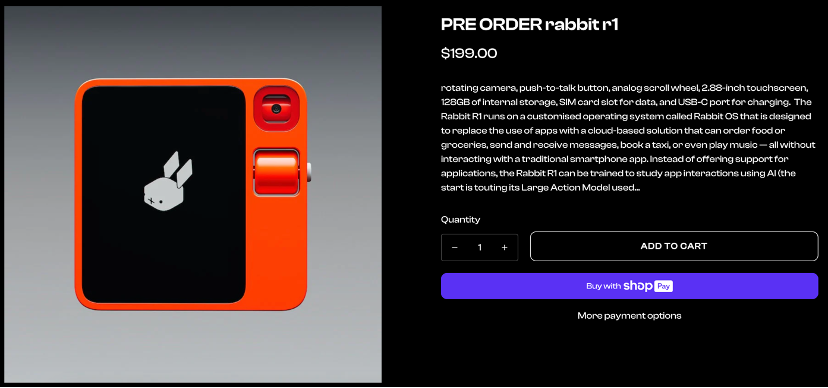
3. Rewind Pendant:
Expected price: $59
The wearable device from Rewind can capture and transcribe sound, encrypt and store data locally on the phone, generate insights with AI, and has privacy protection features. The company's namesake software is a search engine that helps users search for various information from past computer program activities, such as what was discussed online on a specific day, what happened, and what was said in a Zoom meeting. The company has publicly disclosed completing $10 million in funding, with investors including a16z.
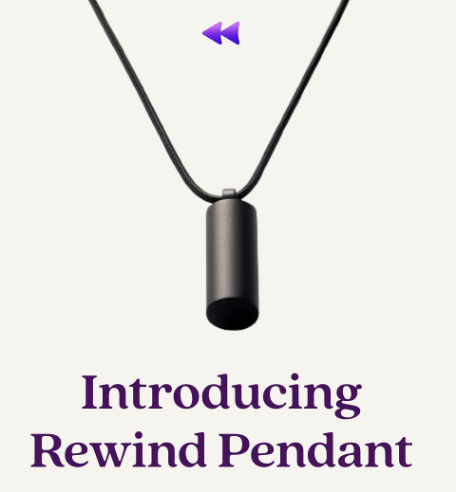
4. Open AI Potential Intelligent Wearable Project
OpenAI is collaborating with former Apple designer Jony Ive and SoftBank to raise over $1 billion for a new AI device project. This project is described as the "iPhone of the artificial intelligence world," with more details yet to be disclosed.
So as a user, which product would you like to purchase?
Reference: Fast Company
免责声明:本文章仅代表作者个人观点,不代表本平台的立场和观点。本文章仅供信息分享,不构成对任何人的任何投资建议。用户与作者之间的任何争议,与本平台无关。如网页中刊载的文章或图片涉及侵权,请提供相关的权利证明和身份证明发送邮件到support@aicoin.com,本平台相关工作人员将会进行核查。




